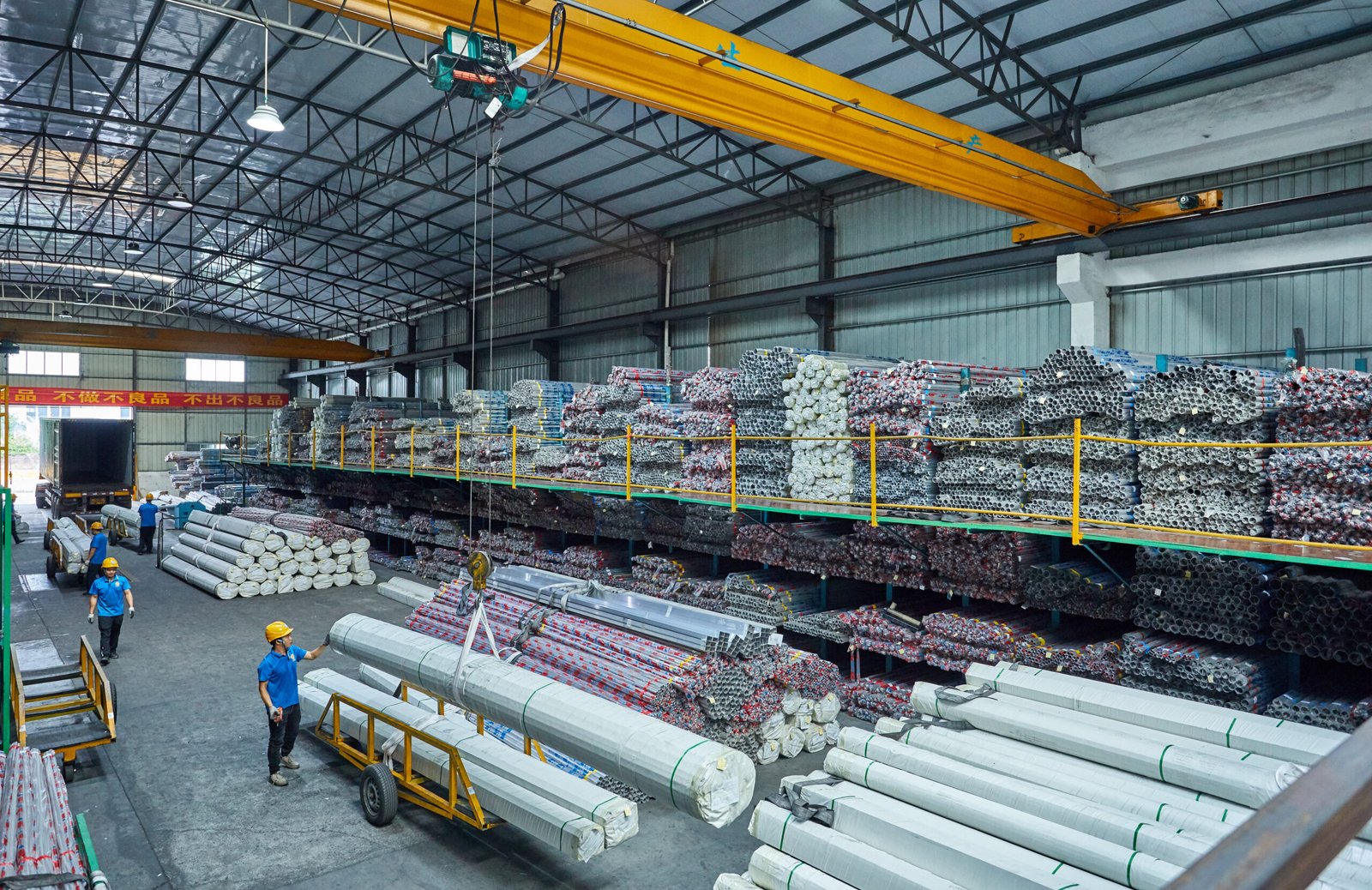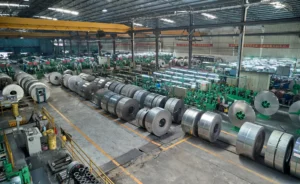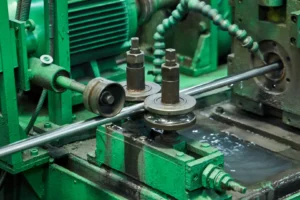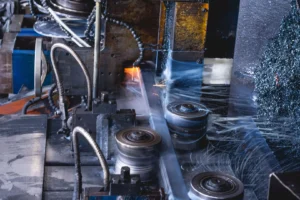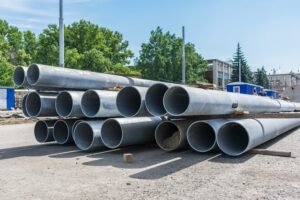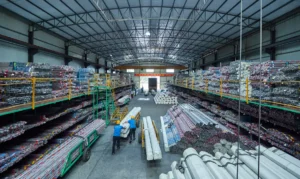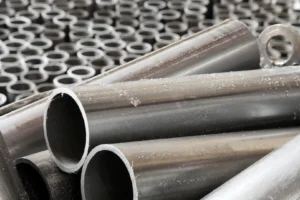Глобальные сертификаты и экспортные экспертизы: Соответствие требованиям MFY: объяснение
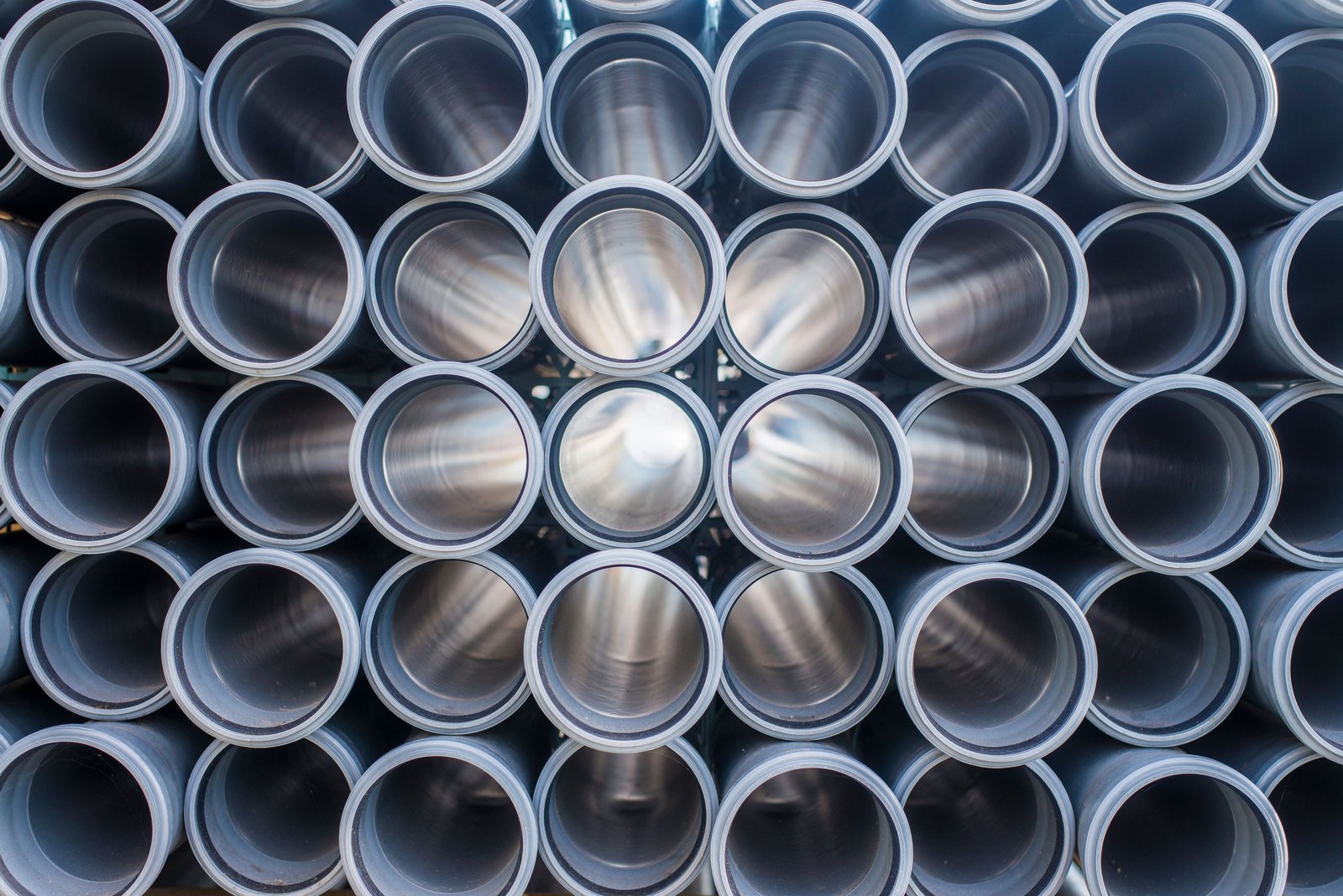
Вам трудно ориентироваться в сложной паутине глобальных сертификатов на нержавеющую сталь? Такая неопределенность может привести к задержкам в реализации дорогостоящих проектов и ограничениям доступа на рынок, что препятствует вашему международному росту. Как директор по глобальному бизнесу MFY, я покажу вам, как наша надежная система обеспечения соответствия гарантирует ваш успех.
Понимание глобальных сертификатов и соответствия требованиям экспорта имеет решающее значение для предприятий, занимающихся поставками нержавеющей стали на международный рынок. MFY ориентируется в этом вопросе, придерживаясь ключевых стандартов, таких как ISO 9001, и сертификации по конкретным регионам, обеспечивая соответствие продукции строгим требованиям качества и безопасности для различных экспортных рынков, что способствует более гладкой глобальной торговле.
Навигация по лабиринту международных стандартов может стать сложной задачей для любого предприятия, стремящегося получать материалы по всему миру. В частности, отрасль производства нержавеющей стали регулируется множеством сертификатов, которые зависят от региона и области применения. Эта сложность - не просто бюрократическое препятствие; это критический фактор, влияющий на качество продукции, безопасность и конечный успех вашего проекта.
В MFY мы рассматриваем соответствие требованиям не просто как набор правил, которым нужно следовать; мы считаем его краеугольным камнем нашей приверженности качеству и ключевым фактором, способствующим реализации глобальных амбиций наших клиентов. Сложность, конечно, заключается в том, что ландшафт международных сертификаций постоянно меняется. Появляются новые стандарты, обновляются существующие, меняются региональные требования. Например, стремление к устойчивому развитию приводит к появлению новых экологических сертификатов, которые быстро приобретают все большее значение. И наоборот, неспособность идти в ногу со временем может означать не только упущенные возможности для бизнеса, но и потенциальные юридические и финансовые последствия. Мы вложили значительные средства в понимание этих нюансов - от общих положений ISO 9001 до конкретных требований стандартов ASTM, EN или JIS, - чтобы наши трубы и трубки из нержавеющей стали соответствовали строгим требованиям клиентов в Индии, Юго-Восточной Азии, на Ближнем Востоке и в России. Такой активный подход, подкрепленный интегрированной цепочкой поставок, позволяет нам предлагать не просто продукцию, а душевное спокойствие.
Какие ключевые глобальные сертификаты относятся к отрасли производства нержавеющей стали?
Запутались в том, какие сертификаты действительно важны для ваших потребностей в нержавеющей стали? Не имея такой ясности, вы рискуете получить материалы, не соответствующие спецификациям проекта или нормативным требованиям, что приведет к значительным неудачам. Я здесь, чтобы разъяснить вам основные глобальные сертификаты.
Ключевыми мировыми сертификатами в отрасли производства нержавеющей стали являются ISO 9001 для управления качеством, CE Marking для европейского соответствия, стандарты ASTM для североамериканских рынков и PED для оборудования, работающего под давлением. Они обеспечивают качество, безопасность и соответствие международным торговым нормам, что очень важно для глобального поиска поставщиков.
Понимание основных международных сертификатов - первый шаг к обеспечению качества и соответствия продукции из нержавеющей стали. Эти сертификаты - не просто значки; они представляют собой приверженность международно признанным стандартам производства, безопасности и управления качеством. Для таких предприятий, как производственные компании или инженерные подрядчики, указание и проверка этих сертификатов может означать разницу между успешным проектом и проектом, чреватым осложнениями. Мы в MFY регулярно помогаем нашим клиентам ориентироваться в этой ситуации. Например, недавно к нам обратился строительный подрядчик в Дубае, которому требовались трубы из нержавеющей стали для проекта высокого уровня со строгими требованиями к безопасности и долговечности. Их главной задачей было обеспечить полное соответствие как местным нормам, так и специфическим инженерным требованиям проекта, которые включали в себя особые стандарты ASTM и EN. Мы смогли провести их по нашему портфелю сертификатов, объяснив, как каждый из них отвечает их конкретным потребностям, предоставив сертификаты испытаний и продемонстрировав наши процессы контроля качества. Такая прозрачность и компетентность не только закрепили их доверие, но и обеспечили бесперебойное выполнение проекта с использованием материалов, полностью соответствующих требованиям. Такой проактивный подход к обучению сертификации жизненно важен, поскольку последствия несоответствия требованиям могут быть самыми разными: от задержек в реализации проекта и превышения бюджета до, в худшем случае, нарушения техники безопасности и юридической ответственности. Поэтому глубокое понимание и проверка сертификатов имеют первостепенное значение.
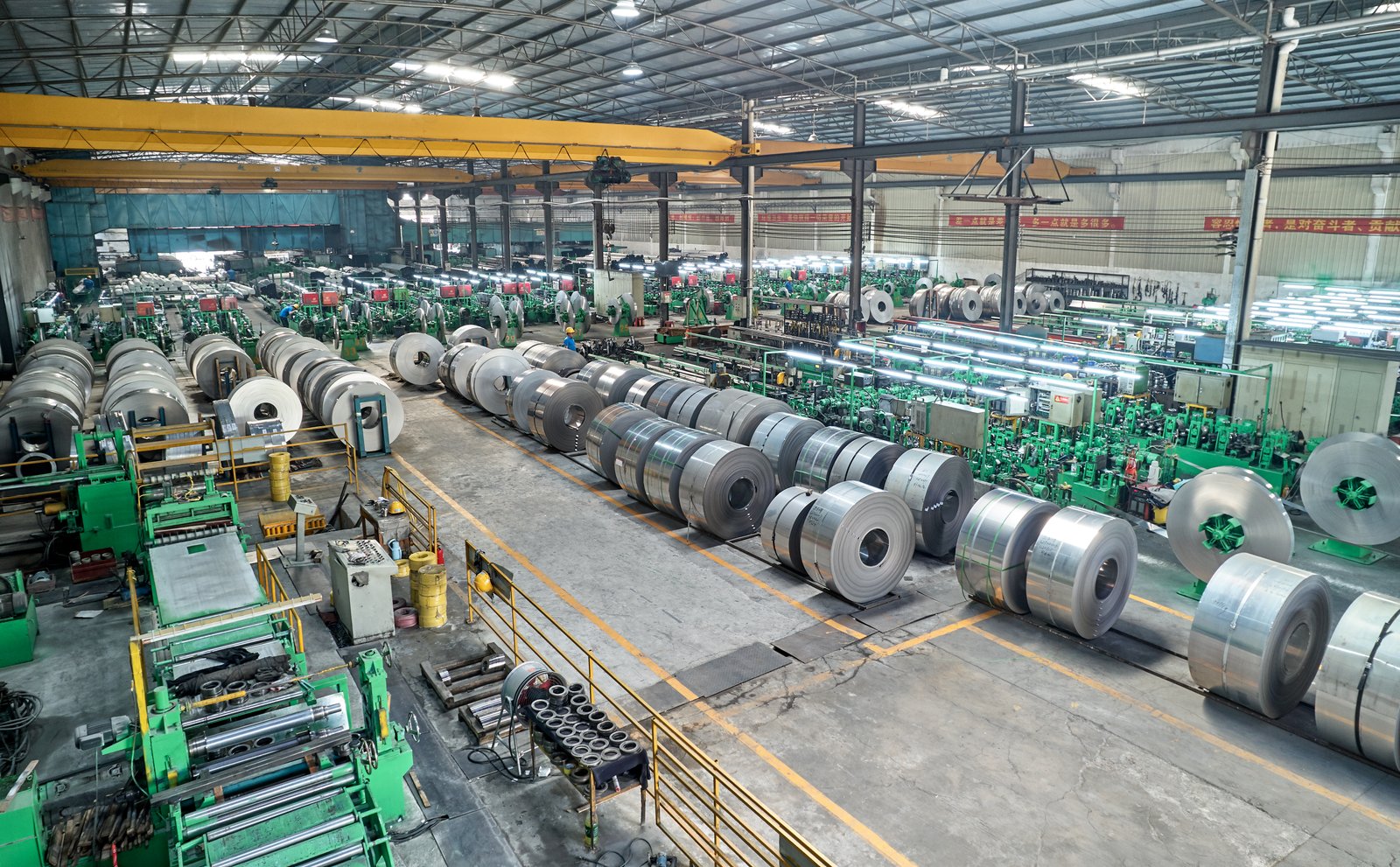
Мир сертификации нержавеющей стали может показаться супом из алфавита, но каждый стандарт служит важнейшей цели в обеспечении качества, безопасности и совместимости на мировых рынках. Будучи директором по глобальному бизнесу в компании MFY, я на собственном опыте убедился, насколько важно глубокое понимание этих сертификатов не только для нас как поставщика, но и для наших разнообразных клиентов, от крупных производственных конгломератов до специализированных инженерных фирм. Ландшафт широк и включает в себя общие системы управления качеством, стандарты на конкретную продукцию, а также все больше требований, специфичных для конкретного региона или области применения. Игнорирование этих требований может привести к значительным операционным и финансовым рискам. Например, партия труб из нержавеющей стали, предназначенная для нефтехимического завода в Юго-Восточной Азии, может быть отклонена, если у нее нет необходимых сертификатов на материал, подтверждающих его коррозионную стойкость при определенных химических воздействиях, даже если она соответствует общим стандартам качества. Именно поэтому в MFY мы не просто получаем сертификаты, а глубоко внедряем их принципы в нашу деятельность, начиная со снабжения сырьем и заканчивая отправкой готовой продукции.
Понимание основных систем менеджмента качества: Эталон ISO 9001
ISO 9001 - это, пожалуй, самый признанный международный стандарт на системы менеджмента качества (СМК). Он предоставляет организациям основу для последовательного выполнения требований клиентов и регулирующих органов. Для компании MFY достижение и поддержание сертификата ISO 9001 является основополагающим фактором. Это означает, что наши процессы - от приема заказов и проверки сырья до контроля производства и тестирования готовой продукции - стандартизированы, документированы и регулярно подвергаются аудиту. Такой системный подход значительно снижает вероятность ошибок и несоответствий. Согласно отраслевым данным, компании, внедрившие ISO 9001, могут добиться повышения операционной эффективности на 15-20% и заметного сокращения количества дефектов продукции. Я вспоминаю конкретный случай, когда наши процессы ISO 9001 помогли нам выявить потенциальное несоответствие в партии сырья до ее поступления в производство, что позволило сэкономить значительные затраты на доработку и предотвратить потенциальную задержку для клиента в Индии, который зависел от своевременной поставки в соответствии с графиком производства.
Наше следование стандарту ISO 9001 - это не статичное достижение, а постоянное обязательство. Регулярные внутренние и внешние аудиты подталкивают нас к постоянному совершенствованию. Например, после недавнего аудита мы выявили возможность усовершенствовать нашу систему отслеживания труб из нержавеющей стали. Внедрив более надежный цифровой метод отслеживания, связанный непосредственно с нашей СМК, мы теперь можем практически мгновенно предоставлять клиентам более подробную историю материала и данные о сертификации. Такой уровень прозрачности особенно ценится нашими клиентами в машиностроительном и строительном секторах, где полная документация часто является контрактным обязательством.
Кроме того, принципы ISO 9001 выходят за рамки качества продукции; они включают в себя ориентацию на клиента, вовлеченность руководства, процессный подход и управление взаимоотношениями. Такой целостный подход гарантирует, что MFY как организация нацелена на создание ценности. Для наших целевых клиентов, таких как дистрибьюторы и трейдеры, это означает, что они могут доверять постоянству нашей продукции и надежности нашего сервиса, что делает их собственные операции более плавными и предсказуемыми. Эта приверженность сертифицированной СМК является ключевым отличительным фактором на конкурентном мировом рынке.
Навигация по конкретным продуктам и региональным стандартам: ASTM, EN и другие
В то время как ISO 9001 касается общей системы управления качеством, конкретные стандарты на продукцию определяют технические спецификации, эксплуатационные характеристики и методики испытаний изделий из нержавеющей стали. Для компании MFY, основной продукцией которой являются трубы и трубки из нержавеющей стали, стандарты ASTM International (бывшее Американское общество по испытаниям и материалам) и EN (Европейские стандарты) имеют решающее значение. Стандарты ASTM широко распространены в Северной Америке и многих других частях мира и охватывают такие аспекты, как химический состав, механические свойства и производственные процессы для различных марок нержавеющей стали. Например, ASTM A312 является общим стандартом для труб из аустенитной нержавеющей стали. Аналогичным образом, стандарты EN, такие как EN 10217-7 для сварных стальных труб, предназначенных для работы под давлением, являются обязательными для продукции, продаваемой в Европейской экономической зоне, и часто указываются в других регионах, находящихся под влиянием европейской инженерной практики.
Компания MFY обеспечивает соответствие стандартам путем согласования наших производственных процессов и проверок контроля качества с этими конкретными стандартами. Это включает в себя строгие испытания в наших собственных лабораториях, охватывающие предел прочности, текучести, удлинения, твердость, а также часто неразрушающие испытания, такие как вихретоковые или гидростатические испытания, в зависимости от стандарта и требований заказчика. Например, поставляя трубы из нержавеющей стали интегратору оборудования для завода по переработке пищевых продуктов в Юго-Восточной Азии, мы должны были обеспечить соответствие не только общим стандартам ASTM для обеспечения структурной целостности, но и особым требованиям к обработке поверхности (например, значению Ra) для соблюдения гигиенических стандартов. Наша способность производить и сертифицировать продукцию в соответствии с этими многочисленными, часто пересекающимися требованиями является одним из ключевых преимуществ. По данным отраслевого исследования 2022 года, 65% международных неудач проектов в строительном секторе были частично связаны с несоответствующими материалами, что подчеркивает важность тщательного соблюдения стандартов на конкретную продукцию.
Сложность заключается в огромном количестве и разнообразии этих стандартов. На разных экспортных рынках часто действуют свои собственные национальные стандарты (например, JIS в Японии, ГОСТ в России) или специфические отраслевые требования. Экспортный опыт MFY включает в себя специальную команду, которая постоянно следит за этими разнообразными требованиями, гарантируя, что наша продукция, предназначенная для Индии, Ближнего Востока или России, соответствует местным условиям. Это может включать дополнительные испытания, специальную маркировку или протоколы документации. Например, для наших клиентов в России навигация по системе сертификации ГОСТ требует детального понимания специфических технических регламентов и процедур оценки соответствия. Наш опыт работы на этих рынках позволяет нам упростить этот процесс, свести к минимуму задержки и обеспечить беспрепятственное таможенное оформление.
| Сертификация/Стандарт | Основной фокус | Ключевые регионы/приложения | Подход MFY к взаимодействию |
|---|---|---|---|
| ISO 9001 | Система менеджмента качества | Глобальная | Основные операционные рамки, непрерывное совершенствование |
| Стандарты ASTM | Материал и характеристики изделия | Северная Америка, Глобальный | Собственные испытания, выравнивание производства, сертификация материалов |
| Стандарты EN (например, CE) | Европейское соответствие, безопасность, здоровье | Европейская экономическая зона, глобальное влияние | Разработка, тестирование, декларирование соответствия продукции |
| PED (оборудование для опрессовки) | Безопасность оборудования, работающего под давлением | Европейский союз | Специальные марки материалов, испытания, прослеживаемость для деталей, работающих под давлением |
| Стандарты JIS | Японские промышленные стандарты | Япония, некоторые азиатские рынки | Соответствие требованиям рынка, проверка качества |
| ГОСТы | Российские национальные стандарты | Россия, страны СНГ | Оценка соответствия, сертификация для доступа на рынок |
Рост числа специализированных сертификатов, ориентированных на устойчивое развитие
Помимо основополагающих стандартов качества и продукции, мы наблюдаем значительное увеличение числа специализированных сертификаций и сертификаций, ориентированных на устойчивое развитие, в отрасли производства нержавеющей стали. По мере того как во всем мире растет осведомленность о воздействии на окружающую среду и этических принципах выбора поставщиков, заказчики, особенно крупные корпорации и те, кто участвует в проектах государственного сектора, все чаще требуют подтверждения ответственного подхода к производству. Все большее распространение получают сертификаты, связанные с управлением окружающей средой (например, ISO 14001), охраной труда (например, ISO 45001) и даже декларированием конкретных материалов (например, экологические декларации продукции - EPD). Хотя некоторые из них пока не являются обязательными для всех, они быстро становятся ключевыми отличительными признаками, а в некоторых случаях и обязательными условиями для участия в определенных тендерах или цепочках поставок.
В MFY мы активно оцениваем и, при необходимости, внедряем эти новые стандарты. Например, внедрение системы экологического менеджмента, соответствующей стандарту ISO 14001, помогает нам минимизировать наш экологический след за счет оптимизации использования ресурсов, сокращения отходов и управления выбросами. Это не только благоприятно сказывается на состоянии окружающей среды, но и может привести к экономии средств и повышению эффективности работы. Исследования таких организаций, как Carbon Disclosure Project (CDP), постоянно показывают, что компании, активно управляющие своим воздействием на окружающую среду, часто превосходят своих конкурентов в финансовом плане. Для наших клиентов-производителей, которые сами вынуждены демонстрировать устойчивые цепочки поставок, обязательства MFY в этой области становятся важным ценностным предложением.
Еще одной областью, приобретающей все большее значение, являются сертификаты, связанные с этическим подходом к выбору сырья. Хотя для нержавеющей стали это менее актуально, чем для некоторых других металлов, обеспечение того, чтобы наши поставщики соблюдали этические нормы трудовых отношений и принципы бесконфликтного поиска сырья, является частью нашей более широкой корпоративной социальной ответственности. Зачастую это не столько сертификация конкретной продукции, сколько проверка поставщиков, но это соответствует общей тенденции к повышению прозрачности и подотчетности глобальных цепочек поставок. Поскольку MFY стремится стать ведущим международным брендом в сфере торговли и услуг, принятие этих перспективных стандартов - это не просто соблюдение требований; это укрепление доверия и демонстрация нашей приверженности устойчивому и этичному будущему отрасли производства нержавеющей стали. Такая активная позиция позволяет нам быть готовыми к удовлетворению растущих потребностей наших клиентов в Индии, Юго-Восточной Азии и за ее пределами, которые все чаще включают вопросы устойчивого развития в свои критерии закупок.
ISO 9001 повышает эффективностьПравда
Компании, внедряющие ISO 9001, могут добиться повышения операционной эффективности на 15-20% за счет стандартизации процессов.
ASTM только для Северной АмерикиЛожь
Несмотря на то, что стандарты ASTM были разработаны в Северной Америке, они широко применяются во всем мире для определения характеристик нержавеющей стали.
Как MFY обеспечивает соответствие международным стандартам сертификации?
Беспокоитесь, действительно ли ваш поставщик нержавеющей стали соответствует всем международным стандартам? Эти сомнения могут поставить под угрозу целостность проекта и репутацию вашей компании. В компании MFY мы применяем многоуровневый подход, чтобы гарантировать непоколебимое соответствие стандартам и обеспечить душевное спокойствие.
MFY обеспечивает соответствие стандартам благодаря надежной системе менеджмента качества (СМК), соответствующей стандарту ISO 9001, тщательным внутренним аудитам, всестороннему обучению сотрудников и соблюдению специальных протоколов испытаний продукции, предусмотренных международными стандартами, такими как ASTM и EN. Это гарантирует качество продукции и ее признание на мировом рынке.
Обеспечение соответствия огромному количеству международных стандартов сертификации - это не разовая задача, а непрерывный, динамичный процесс. Он требует систематического и комплексного подхода, пронизывающего все уровни организации. Для MFY это означает не просто получение сертификатов, а внедрение принципов этих стандартов в повседневную деятельность и культуру компании. Наши клиенты, будь то крупные производственные компании или специализированные инженерные подрядчики, полагаются на целостность нашей продукции, а эта целостность в основе своей строится на нашей непоколебимой приверженности соблюдению стандартов. Я часто общаюсь с клиентами, которые столкнулись с серьезными проблемами с предыдущими поставщиками из-за несоответствующего качества или несоответствия установленным стандартам. Например, одна строительная компания на Ближнем Востоке рассказала о своем опыте получения партии труб из нержавеющей стали, которые, хотя и имели приемлемый внешний вид, не выдержали критических испытаний давлением, что привело к дорогостоящей замене и задержке проекта. Подобные сценарии подчеркивают исключительную важность надежных механизмов соблюдения требований со стороны поставщика. В компании MFY мы понимаем эти риски и выстроили свои процессы таким образом, чтобы эффективно снизить их, гарантируя, что каждая труба из нержавеющей стали или труба, выходящая с нашего предприятия, отвечает точным требованиям наших клиентов по всему миру. Для этого мы тщательно сочетаем передовые технологии, строгий контроль процессов и высококвалифицированную рабочую силу, нацеленную на качество.
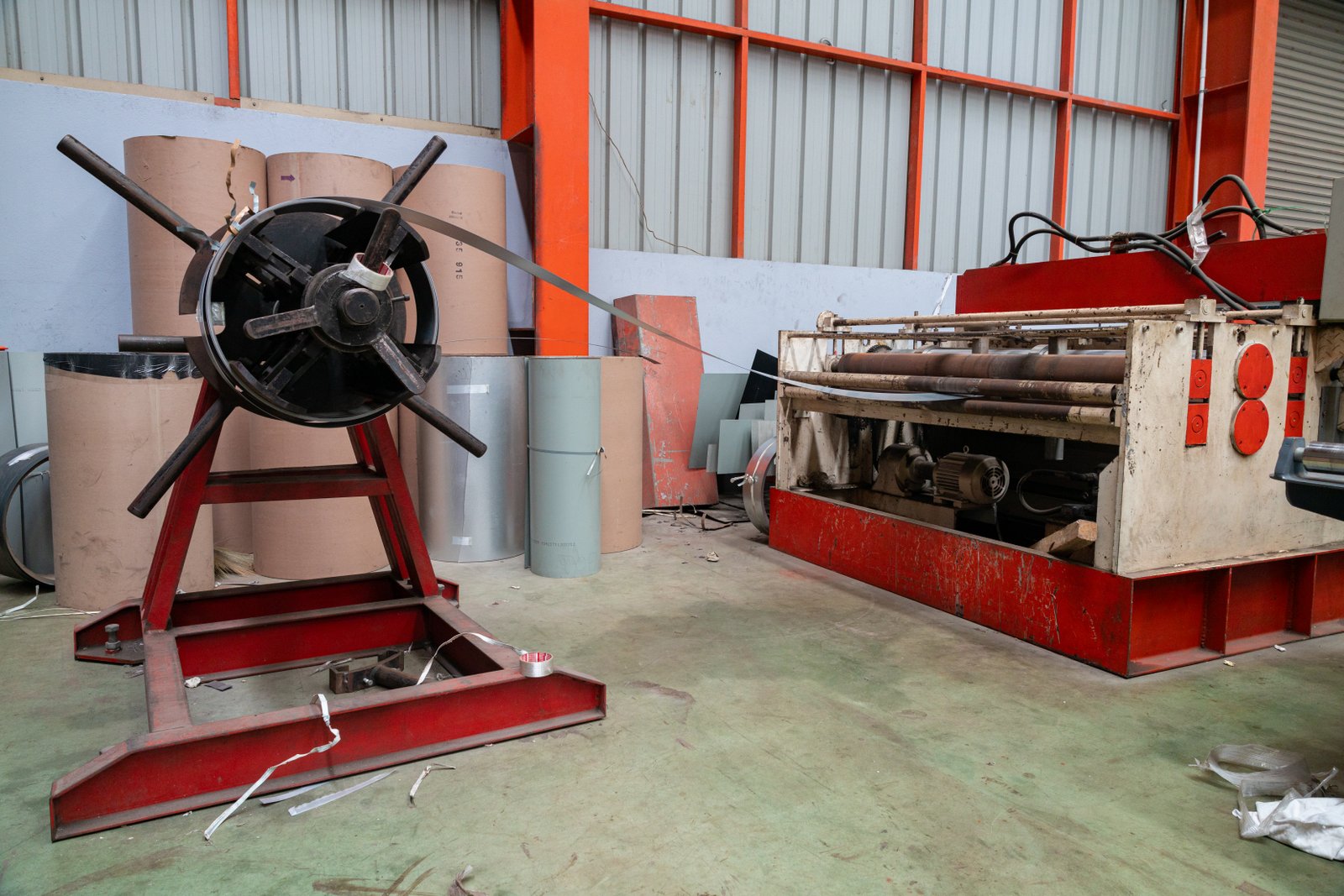
В компании MFY приверженность соблюдению требований вплетена в ткань нашей деятельности, начиная с первоначального выбора сырья и заканчивая отправкой готовых труб и трубок из нержавеющей стали. Это комплексная стратегия, разработанная для того, чтобы соответствовать, а зачастую и превосходить ожидания, предъявляемые международными органами по сертификации и, что особенно важно, нашими разнообразными клиентами на таких рынках, как Индия, Юго-Восточная Азия и Ближний Восток. Речь идет не просто о "галочках", а о формировании культуры качества и надежности, которая лежит в основе нашего видения - стать ведущим международным брендом в сфере торговли и услуг. Наша интегрированная цепочка поставок дает нам уникальное преимущество, позволяя внедрять и контролировать меры по обеспечению соответствия на каждом этапе. Этот комплексный подход включает в себя надежные внутренние системы, постоянное повышение квалификации сотрудников и стратегическое партнерство с аккредитованными органами по тестированию и сертификации. Динамичный характер глобальных стандартов требует гибкой и оперативной системы обеспечения соответствия, способной быстро и эффективно адаптироваться к новым нормам и меняющимся требованиям клиентов.
Надежные внутренние системы управления качеством (СМК)
Основой стратегии соответствия MFY является наша комплексная система менеджмента качества (СМК), тщательно разработанная в соответствии с принципами ISO 9001 и другими соответствующими отраслевыми стандартами. Эта СМК - не просто набор документов; это активная, живая система, которая руководит нашей повседневной деятельностью. Она включает в себя подробные процедуры для каждого критического процесса, включая проверку и приемку сырья, проверку качества в процессе холодной прокатки и производства труб, калибровку испытательного оборудования и проверку конечной продукции. Например, каждая партия поступающей рулонной нержавеющей стали проходит тщательный химический анализ и испытания на механические свойства, чтобы убедиться в ее соответствии базовым спецификациям еще до того, как она поступит в обработку. Согласно исследованию Американского общества качества (ASQ), организации с развитой СМК отмечают на 25% более высокий уровень удовлетворенности клиентов и на 30% более низкие эксплуатационные расходы за счет сокращения повторной обработки и отходов.
В нашей СМК большое внимание уделяется прослеживаемости. С момента поступления сырья на наш завод и до момента отгрузки готовых труб каждый элемент можно отследить, связав его с сертификатами на материалы, параметрами обработки и результатами испытаний качества. Это особенно важно для клиентов, работающих в регулируемых отраслях, таких как производство оборудования для пищевой промышленности и фармацевтики, где полная история материалов часто является обязательным условием. Я вспоминаю одного клиента, интегратора оборудования для молочных заводов в Индии, который особо отметил нашу систему прослеживаемости, поскольку она позволила ему легко предоставлять своим конечным заказчикам всю необходимую документацию, упрощая их собственную нагрузку по соблюдению нормативных требований.
Кроме того, наша СМК включает в себя надежную систему управления несоответствиями и реализации корректирующих и предупреждающих действий (CAPA). Любое отклонение от установленных стандартов, будь то выявленное в ходе внутренних проверок или по отзывам клиентов, вызывает систематическое расследование для определения первопричины. Затем реализуются соответствующие корректирующие действия для решения непосредственной проблемы, и разрабатываются профилактические действия для предотвращения повторения. Этот цикл непрерывного совершенствования, являющийся основным принципом стандарта ISO 9001, обеспечивает постоянное совершенствование и укрепление наших механизмов обеспечения соответствия. Например, анализ незначительных дефектов поверхности на конкретной партии труб привел к повторной калибровке нашего полировочного оборудования и дополнительному обучению операторов, что в конечном итоге повысило качество отделки последующих партий.
Постоянное обучение и повышение квалификации сотрудников
Какой бы сложной ни была СМК, ее эффективность в конечном итоге зависит от людей, которые ее внедряют. В компании MFY мы уделяем большое внимание постоянному обучению сотрудников и повышению их компетентности во всех аспектах качества и соответствия требованиям. Наши сотрудники, от техников на производстве до инспекторов по контролю качества и торгового персонала, взаимодействующего с клиентами, регулярно проходят обучение по соответствующим международным стандартам, специальным процедурам качества MFY и последним достижениям в области технологий производства и тестирования нержавеющей стали. Это не разовое мероприятие, а постоянная программа, включающая первоначальное обучение, развитие специальных навыков и периодическое повышение квалификации. Например, наши сварщики при производстве труб из нержавеющей стали проходят специальное обучение и сертификацию в соответствии с такими стандартами, как ASME Section IX или EN ISO 9606, что гарантирует целостность нашей сварной продукции.
Инвестиции в наш человеческий капитал приносят значительные дивиденды. Хорошо обученный персонал лучше выявляет потенциальные проблемы с качеством на ранней стадии, соблюдает точные производственные допуски и правильно интерпретирует сложные требования сертификации. Согласно отраслевым отчетам, компании, постоянно инвестирующие в обучение сотрудников, отмечают прямую положительную корреляцию с качеством продукции и сокращением числа инцидентов, связанных с несоблюдением требований. Одна из наших ключевых стратегий включает в себя межфункциональное обучение, в ходе которого сотрудники разных отделов получают представление о том, как их роль влияет на общее качество и соответствие требованиям. Это способствует формированию общего чувства ответственности и улучшает внутреннюю коммуникацию.
Кроме того, наши программы обучения включают в себя изучение специфических потребностей и нормативной базы наших ключевых экспортных рынков, таких как Юго-Восточная Азия и Россия. Это гарантирует, что наши команды не только технически грамотны, но и коммерчески проницательны, способны проконсультировать клиентов по наиболее подходящим спецификациям и сертификации продукции для их конкретных областей применения и регионов. Для наших целевых клиентов, таких как дистрибьюторы и трейдеры, такое глубокое знание продукции и понимание соответствия нормативным требованиям в нашей команде означает более эффективные сделки и большее доверие к MFY как к надежному партнеру. Стремление к развитию высококвалифицированного персонала является неотъемлемой частью поддержания нашего конкурентного преимущества и репутации компании.
Строгое тестирование, аудит и проверка третьими сторонами
Важнейшим компонентом обеспечения соответствия MFY является строгий режим испытаний и аудита, дополняемый проверками третьих сторон. Наши собственные лаборатории оснащены передовым испытательным оборудованием для проведения широкого спектра механических, химических и неразрушающих испытаний (NDT), предусмотренных такими стандартами, как ASTM, EN, JIS и другими. К ним относятся разрывные тестеры, твердомеры, спектрометры для химического анализа, вихретоковые тестеры, ультразвуковые тестеры и установки для гидростатических испытаний. Каждая партия труб и трубок из нержавеющей стали MFY проходит ряд испытаний на соответствие установленным стандартам и требованиям заказчика, прежде чем она будет сертифицирована для выпуска. Например, для труб, работающих под давлением, часто проводятся гидростатические испытания 100% для обеспечения герметичности и структурной целостности под давлением, что напрямую соответствует требованиям Директивы по оборудованию, работающему под давлением (PED) для европейских рынков.
Внутренние аудиты регулярно проводятся во всех подразделениях для обеспечения соблюдения СМК и выявления областей, требующих улучшения. Эти аудиты проводятся обученными внутренними аудиторами, которые не зависят от проверяемой области, что обеспечивает объективность. Результаты этих аудитов рассматриваются высшим руководством и служат основой для корректирующих действий и стратегических улучшений нашей системы соответствия. Такая проактивная самооценка очень важна для поддержания высокого уровня готовности к внешним аудитам.
Кроме того, MFY активно привлекает аккредитованные сторонние органы по сертификации и инспекционные агентства для проверки наших процессов и продукции. Эти внешние аудиты обеспечивают независимую оценку нашего соответствия международным стандартам, таким как ISO 9001, и сертификации конкретных продуктов. Мы также принимаем назначенных клиентом сторонних инспекторов, которые хотят стать свидетелями испытаний или проверить продукцию перед отгрузкой. Такая прозрачность и готовность к внешнему контролю укрепляют доверие и дают нашим клиентам дополнительный уровень уверенности. Например, многие из наших клиентов - инженерных и строительных подрядчиков с Ближнего Востока - регулярно привлекают сторонних инспекторов, и наша политика открытых дверей способствует гладкому и совместному процессу проверки, укрепляя наше стремление соответствовать их строгим ожиданиям качества. Такой многогранный подход к тестированию и проверке является основой обещания MFY поставлять соответствующие требованиям высококачественные решения из нержавеющей стали по всему миру.
СМК компании MFY соответствует стандарту ISO 9001Правда
В статье прямо говорится, что система менеджмента качества MFY разработана в соответствии с принципами ISO 9001, что делает это утверждение верным.
Соответствие требованиям - это одноразовая сертификацияЛожь
В тексте подчеркивается, что соблюдение требований - это непрерывный процесс, включающий аудиты, обучение и совершенствование системы, а не просто получение сертификатов.
С какими проблемами сталкивается MFY при поддержании глобального экспортного опыта?
Является ли для ваших поставщиков постоянной борьбой за лидерство на постоянно меняющемся глобальном экспортном рынке? Изменчивые правила и требования рынка могут привести к непредвиденным проблемам с соблюдением требований. Я расскажу, как компания MFY активно решает эти проблемы, чтобы обеспечить бесперебойный экспорт.
MFY сталкивается с проблемами, связанными с поддержанием глобального экспортного опыта, включая навигацию по различным международным нормам, управление сложной логистикой на различных рынках, адаптацию к региональным стандартам качества и сертификации, а также смягчение геополитических и экономических колебаний, которые эффективно влияют на торговлю и цепочки поставок.
Поддержание высокого уровня знаний о глобальном экспорте в отрасли производства нержавеющей стали - сложная и постоянная задача. Речь идет не просто о понимании действующих норм, а о предвидении изменений, адаптации к разнообразным требованиям рынка и управлении множеством переменных, которые могут повлиять на международную торговлю. Для такой компании, как MFY, с широким экспортным присутствием, охватывающим такие регионы, как Индия, Юго-Восточная Азия, Ближний Восток и Россия, эти задачи многогранны. Наши клиенты, начиная от производственных компаний и заканчивая крупными инженерными подрядчиками, зависят от нашей способности беспрепятственно преодолевать эти сложности. Я вспоминаю разговор с менеджером по закупкам крупной производственной компании в Индии, который ранее работал с поставщиком, имевшим проблемы с несоответствующей документацией для таможенного оформления, что приводило к значительным задержкам и перебоям в производстве. Этот опыт показал им, насколько ценен такой партнер, как MFY, который вкладывает значительные средства в поддержание надежного экспортного опыта. Динамичный характер мировой торговли означает, что новые проблемы могут возникать неожиданно, от изменений в торговой политике до логистических сбоев, что требует постоянной бдительности и адаптации.
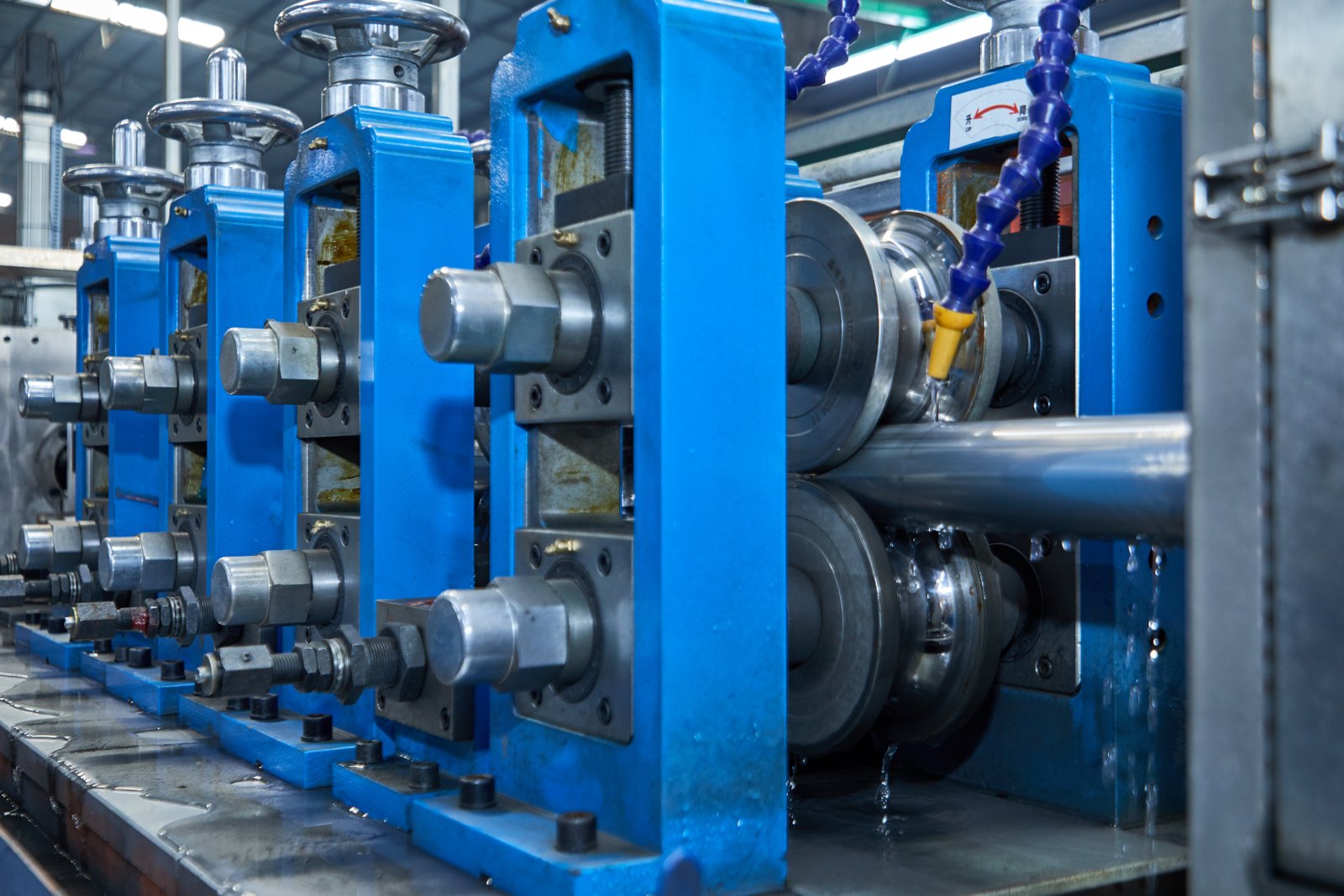
Будучи директором MFY по глобальному бизнесу, я на собственном опыте убедился в том, что поддержание передового опыта в области глобального экспорта - это не столько пункт назначения, сколько постоянный путь адаптации и обучения. Рынок нержавеющей стали по своей сути является глобальным, но эта взаимосвязь порождает уникальный набор проблем. Это не просто незначительные препятствия; они могут существенно повлиять на сроки поставки, стоимость и способность клиента уложиться в сроки реализации проекта. Для MFY успешный экспорт на такие разнообразные рынки, как Индия, Юго-Восточная Азия, Ближний Восток и Россия, требует активного и продуманного подхода к пониманию и решению этих проблем. Наша приверженность делу глобального расширения китайской цепочки поставок нержавеющей стали означает, что мы должны быть исключительно искусны в навигации по сложностям международной торговли - от лабиринтов нормативно-правового регулирования до логистических хитросплетений и культурных нюансов. Эта способность является центральным элементом нашего ценностного предложения для производственных компаний, инженерных подрядчиков, дистрибьюторов и интеграторов оборудования, которые полагаются на нас в вопросах эффективного и надежного снабжения.
Навигация по лабиринту развивающихся международных правил и торговой политики
Одной из наиболее серьезных проблем в поддержании глобального экспортного опыта является постоянно меняющийся ландшафт международных правил, стандартов и торговой политики. Каждая страна или регион, в которые экспортирует MFY, имеет свой собственный набор требований к импорту, таможенным процедурам и стандартам продукции, которые могут меняться практически незаметно. Например, внезапное введение антидемпинговых пошлин, изменение импортных тарифов или введение новых технических барьеров в торговле (ТБТ) может существенно повлиять на стоимость и целесообразность экспорта на тот или иной рынок. Чтобы оставаться в курсе этих изменений в различных юрисдикциях, необходимо прилагать целенаправленные усилия. MFY вкладывает средства в изучение рынка, подписывается на международные торговые издания и часто сотрудничает с местными консультантами на ключевых рынках, чтобы быть уверенным в том, что мы располагаем самой свежей информацией. В отчете Всемирной торговой организации за 2023 год подчеркивается, что количество новых мер по ограничению торговли, введенных странами G20, по-прежнему вызывает озабоченность, что подчеркивает эту нестабильность.
Подумайте о сложности экспорта труб из нержавеющей стали, которые могут быть использованы в критически важных инфраструктурных проектах. Они часто требуют соблюдения не только широких международных стандартов, таких как ASTM или EN, но и специальных национальных приложений или местных строительных норм и правил. Например, при экспорте в страны Ближнего Востока может потребоваться соблюдение специальных стандартов, установленных SASO (Саудовской организацией по стандартизации, метрологии и качеству) или ESMA (Эмиратским управлением по стандартизации и метрологии), каждое из которых имеет свои собственные процедуры сертификации и оценки соответствия. Несоблюдение этих требований может привести к тому, что товары будут задержаны на таможне, забракованы или даже реэкспортированы со значительными затратами. Я вспоминаю случай в начале своей карьеры, когда незначительная оплошность в документации на груз, отправляемый в одну из стран Юго-Восточной Азии, привела к двухнедельной задержке в порту, что стало ценным уроком важности тщательного внимания к деталям.
Кроме того, геополитические факторы могут внести внезапные и непредсказуемые изменения в динамику торговли. Санкции, торговые эмбарго или изменения в международных отношениях могут открыть или закрыть рынки или существенно изменить условия торговли. MFY снижает эти риски, диверсифицируя свои экспортные рынки и разрабатывая гибкие стратегии реагирования. Наша команда, отвечающая за экспортную документацию и соблюдение требований, регулярно проходит обучение, чтобы быть в курсе последних Инкотермс, методов таможенной оценки и положений соглашений о свободной торговле (ССТ), которые могут быть применимы, например, в рамках АСЕАН для наших клиентов из Юго-Восточной Азии, которые могут предложить льготные тарифные ставки, если все правила происхождения правильно соблюдены и документально подтверждены.
Управление сложными рисками логистики и цепей поставок в различных географических регионах
Экспорт физических товаров, таких как трубы и трубки из нержавеющей стали, неизбежно связан с управлением сложной логистикой и снижением рисков цепочки поставок в обширных и разнообразных географических регионах. MFY поставляет продукцию в Индию, Юго-Восточную Азию, на Ближний Восток и в Россию, где возникают уникальные логистические проблемы, начиная от загруженности портов и инфраструктуры внутренних перевозок и заканчивая различной эффективностью таможенного оформления и возможностями складирования. Обеспечение своевременной и экономически эффективной доставки требует тщательного планирования, надежных партнерских отношений с экспедиторами и судоходными линиями, а также активного управления рисками. Например, выбор оптимального маршрута перевозки, перевозчика и вида транспорта (морского, железнодорожного или мультимодального) требует тщательного учета времени, стоимости и надежности транзита. Отраслевые данные показывают, что в последние годы надежность морских перевозок была нестабильной, а показатели своевременности контейнерных судов иногда опускались ниже 40%, что делает необходимым проактивное управление перевозчиками и планирование на случай непредвиденных обстоятельств.
Значительной проблемой является управление доставкой "последней мили" на различных рынках, где местная инфраструктура и правила могут сильно различаться. Для строительного подрядчика, работающего на удаленном объекте в Индии, обеспечение доставки крупной партии труб из нержавеющей стали в срок и без повреждений требует тесной координации с местными поставщиками логистических услуг. MFY решает эту проблему, работая с сетью надежных логистических партнеров на наших ключевых экспортных рынках, которые обладают проверенным опытом работы на местах. Мы также инвестируем в надежные упаковочные решения, предназначенные для защиты нашей продукции из нержавеющей стали во время длительных морских путешествий и потенциально грубого обращения во время транзита и разгрузки.
Кроме того, значительное влияние могут оказать сбои в цепочке поставок, вызванные стихийными бедствиями, забастовками в портах, геополитическими событиями или даже пандемиями, как мы наблюдали в последнее время. Стратегия MFY по снижению этих рисков включает в себя поддержание значительного объема запасов основных сортов и размеров, диверсификацию источников доставки и логистических услуг, а также поддержание открытых каналов связи с нашими клиентами для управления ожиданиями и совместного поиска решений в периоды сбоев. Например, в периоды острой загруженности портов мы можем изучить альтернативные порты или маршруты доставки, даже если они несколько дороже, чтобы свести к минимуму задержки в реализации важных проектов клиентов. Наша интегрированная цепочка поставок также обеспечивает определенный запас прочности, поскольку мы лучше контролируем производственные графики и иногда можем ускорить производство, чтобы компенсировать возможные задержки в доставке.
Адаптация к региональным особенностям качества и ожиданиям клиентов
Хотя международные стандарты, такие как ISO, ASTM и EN, обеспечивают общий язык качества, часто существуют тонкие региональные нюансы и специфические ожидания клиентов, к которым MFY должна адаптироваться, чтобы сохранить свой экспортный опыт. То, что может считаться стандартной отделкой или допуском на одном рынке, может быть иным на другом. Например, клиенты в некоторых высокотехнологичных отраслях производства в Юго-Восточной Азии могут предъявлять чрезвычайно жесткие требования к чистоте поверхности или точности размеров труб из нержавеющей стали, используемых в прецизионном оборудовании, выходящие за рамки общих положений международных стандартов. Понимание и удовлетворение этих неоговоренных или очень специфических потребностей имеет решающее значение для удовлетворения потребностей клиентов и долгосрочных отношений.
MFY достигает этой адаптации благодаря тесному сотрудничеству с нашими клиентами и постоянной обратной связи с рынком. Наши отделы продаж и технической поддержки работают над тем, чтобы понять специфику применения и конечного использования нашей продукции из нержавеющей стали на каждом рынке. Это позволяет нам консультировать клиентов по наиболее подходящим маркам и спецификациям и соответствующим образом адаптировать наши процессы производства и контроля качества. Например, для клиента на Ближнем Востоке, использующего трубы из нержавеющей стали для опреснительных установок, особые опасения по поводу коррозионной стойкости в среде с высоким содержанием солей могут заставить нас рекомендовать определенные сплавы или обработку поверхности и провести дополнительные специализированные коррозионные испытания сверх стандартных протоколов. Опрос, проведенный нами среди наших ключевых дистрибьюторов, показал, что способность реагировать на специфические потребности местного рынка входит в число трех главных факторов при выборе поставщика.
Более того, культурные различия в деловой практике и стилях общения также могут создавать проблемы. Установление доверительных и эффективных рабочих отношений с клиентами на таких разных рынках, как Россия или Индия, требует учета культурных особенностей и адаптируемого подхода. MFY инвестирует средства в обучение своих международных отделов продаж и обслуживания клиентов межкультурному общению и деловому этикету. Такое внимание к пониманию более широкого контекста клиента, а не только его технических характеристик, помогает нам лучше предвидеть его потребности и предоставлять более индивидуальный и эффективный сервис. Такая адаптивность - ключ к превращению потенциальных проблем в возможности для укрепления наших позиций на рынке и повышения репутации поставщика, ориентированного на глобальное развитие.
Правила экспорта постоянно меняютсяПравда
Международная торговая политика и требования к импорту часто меняются, что требует постоянного мониторинга и адаптации.
Один стандарт подходит для всех рынковЛожь
В разных регионах действуют уникальные требования к качеству и сертификации, выходящие за рамки международных стандартов, таких как ASTM или EN.
Какие стратегии использует MFY для эффективного решения проблем, связанных с соблюдением нормативных требований?
Вы опасаетесь, что ваш поставщик может споткнуться о сложные препятствия, мешающие соблюдению нормативных требований, и это приведет к задержке ваших важных проектов? Эти опасения могут нарушить ваше планирование и повлиять на итоговый результат. В компании MFY мы реализуем проактивные стратегии, чтобы превратить проблемы с соблюдением нормативных требований в сильные стороны, обеспечивая бесперебойную работу.
MFY решает проблемы соблюдения требований стандартов путем постоянных инвестиций в обучение и технологии, поддержания проактивной системы сбора информации о нормативных требованиях, развития тесных отношений с органами сертификации и реализации строгих программ внутреннего аудита. Это обеспечивает постоянное соблюдение развивающихся мировых стандартов для нашей продукции из нержавеющей стали.
Эффективное решение проблем соблюдения нормативных требований на мировом рынке нержавеющей стали требует не просто реактивного подхода, а проактивной, стратегической и постоянно развивающейся методологии. Ландшафт международных стандартов, региональных норм и ожиданий клиентов находится в постоянном движении, что требует надежной системы, позволяющей ориентироваться в этих сложностях. В компании MFY мы понимаем, что наша способность постоянно соответствовать и превосходить эти требования к соблюдению норм является основой доверия наших клиентов и нашего собственного успеха в бизнесе. Например, производственные компании и инженерные подрядчики часто работают в условиях сжатых сроков и жестких требований к качеству, и любое нарушение требований поставщиков может иметь значительные последствия. Я лично общался с клиентами, которые перешли в MFY после того, как столкнулись с подобными проблемами в других компаниях, и в качестве ключевого фактора своего решения они назвали наше прозрачное и проактивное управление соответствием нормативным требованиям. Им нужен партнер, который не только понимает правила, но и имеет четкую стратегию, позволяющую опережать их, гарантируя, что каждая поставка труба из нержавеющей стали1 каждый раз достигает цели, независимо от тонкостей рынка назначения. Поэтому наши стратегии разрабатываются как комплексные, объединяющие технологии, человеческий опыт и прочные внешние партнерские отношения.
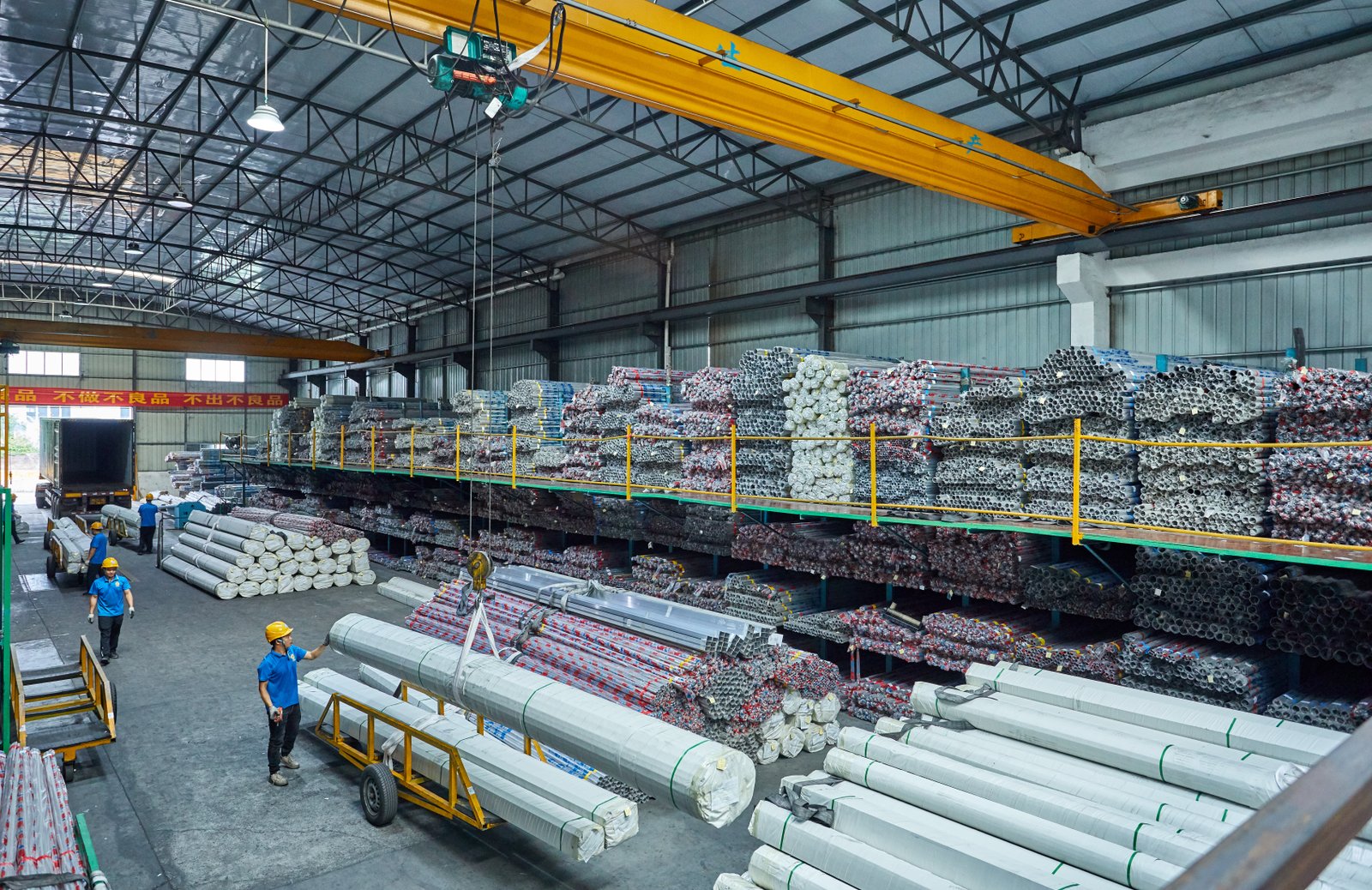
Занимая должность директора по глобальному бизнесу в компании MFY, я убедился, что эффективное решение проблем, связанных с соблюдением нормативных требований, - это не пассивная деятельность, а постоянное, динамичное обязательство. Промышленность нержавеющей стали работает в глобальных рамках сложных и постоянно меняющихся стандартов. Для MFY с ее разнообразными экспортными рынками, включая Индию, Юго-Восточную Азию, Ближний Восток и Россию, важна многосторонняя стратегия. Эта стратегия основана на постоянном совершенствовании, технологической интеграции, глубоком анализе рынка и надежном внутреннем управлении. Наша цель - не просто реагировать на требования, а предвидеть их, обеспечивая постоянное соответствие труб из нержавеющей стали строгим требованиям наших клиентов, будь то производственные компании, инженерные подрядчики, дистрибьюторы или интеграторы оборудования. Такая проактивная позиция является основным элементом нашей конкурентоспособности и нашей миссии по поддержке глобального расширения китайской цепочки поставок нержавеющей стали.
Инвестиции в непрерывное обучение и передовые технологии
Одной из основных стратегий MFY по решению проблем, связанных с соблюдением нормативных требований, являются постоянные инвестиции в непрерывное обучение персонала и внедрение передовых технологий. Мир международных стандартов (таких как ISO, Стандарты ASTM2EN, JIS, ГОСТ) не является статичным; часто происходят пересмотры, появляются новые стандарты, а региональные интерпретации могут отличаться. Чтобы не отставать, наши специалисты по контролю качества, производству и экспорту регулярно проходят обучение и сертификацию. Мы подписываемся на отраслевые журналы, участвуем в международных конференциях и поддерживаем членство в соответствующих организациях по стандартизации. Благодаря этому наши сотрудники всегда обладают самыми современными знаниями. Например, когда выходит новая редакция стандарта ASTM по испытанию труб из нержавеющей стали, наша техническая команда немедленно анализирует изменения, обновляет внутренние протоколы и проводит переподготовку соответствующего персонала. Недавний внутренний опрос показал, что 85% наших сотрудников отдела контроля качества считают, что их постоянное обучение значительно повышает их способность упреждать проблемы, связанные с соблюдением требований.
В технологическом плане MFY использует цифровые инструменты для оптимизации процессов соблюдения требований. В нашу систему планирования ресурсов предприятия (ERP) интегрированы модули управления качеством, позволяющие в режиме реального времени отслеживать параметры производства, результаты испытаний и сертификационную документацию. Эта цифровая основа поддерживает тщательный учет и прослеживаемость, что очень важно для проведения аудитов и предоставления клиентам комплексных пакетов документов по соблюдению нормативных требований. Мы также изучаем возможности использования инструментов искусственного интеллекта в области нормативно-правового регулирования, которые помогают сканировать и отмечать изменения в международном торговом законодательстве и стандартах, имеющих отношение к нашим экспортным рынкам. Например, наши инвестиции в передовое оборудование для неразрушающего контроля (NDT), такое как ультразвуковой контроль с фазированной решеткой (PAUT) для критических проверок сварных швов, позволяют нам соответствовать более строгим требованиям соответствия для специализированных приложений, часто превышающим базовые стандарты. Это технологическое преимущество не только обеспечивает соответствие требованиям, но и повышает качество продукции и обеспечивает конкурентное преимущество.
Такие двойные инвестиции в персонал и технологии дают синергетический эффект. Квалифицированный персонал может более эффективно использовать передовые инструменты, а технологии позволяют автоматизировать рутинные задачи, освобождая наших специалистов для решения более сложных задач по соблюдению требований и инициатив по постоянному совершенствованию. Для клиента-производителя из Германии, которому требовались трубы из нержавеющей стали, соответствующие требованиям DIN, наша способность быстро получить доступ к историческим производственным данным, сопоставить их с последними редакциями DIN и обеспечить соответствие текущим процессам, чему способствовали наши интегрированные системы и квалифицированный персонал, стала ключевым фактором для обеспечения их повторного бизнеса.
Проактивное изучение нормативно-правовой базы и адаптация к конкретным условиям рынка
Краеугольным камнем стратегии соответствия MFY является наш проактивный подход к изучению нормативно-правовой базы и адаптации к конкретным рынкам. Мы не ждем, пока на экспортном рынке возникнут проблемы с соблюдением нормативных требований; мы стремимся предвидеть изменения и подготовиться к ним. Для этого у нас есть специальная команда и ресурсы, сосредоточенные на мониторинге нормативно-правовой базы наших ключевых рынков - Индии, Юго-Восточной Азии, Ближнего Востока, России и других стран. Этот сбор информации охватывает не только официальные стандарты и сертификаты, но и таможенные процедуры, требования к импортной документации и даже новые местные экологические нормы и нормы безопасности, которые могут повлиять на продукцию из нержавеющей стали. Например, понимание меняющихся требований Бюро индийских стандартов (BIS) к некоторым видам стальной продукции очень важно для нашего экспорта в Индию. Аналогичным образом, для Ближнего Востока жизненно важно быть в курсе конкретных проектных требований по обеспечению качества, предъявляемых крупными нефтегазовыми и строительными компаниями.
Эти данные затем используются в наших стратегиях адаптации к конкретным рынкам. MFY признает, что универсальный подход к соблюдению требований недостаточен. В то время как основное качество поддерживается повсеместно, документация, испытания и даже маркировка продукции могут быть адаптированы к специфическим требованиям каждого экспортного направления. Например, для продукции, предназначенной для России, может потребоваться сертификация по ГОСТ-Р и специальная русскоязычная документация, а для продукции, предназначенной для Европейского союза, - маркировка CE и декларация о соответствии со ссылкой на соответствующие стандарты EN. Наш экспортный отдел работает в тесном контакте с производственным отделом и отделом контроля качества, чтобы обеспечить учет этих специфических требований в рабочем процессе уже на стадии заказа. Такая тщательная подготовка сводит к минимуму риск задержек или отказов на таможне. В качестве примера можно привести крупный заказ для инженерного подрядчика в Юго-Восточной Азии, где для материалов, используемых в водной инфраструктуре, были введены новые местные экологические испытания на выщелачиваемость тяжелых металлов. Заблаговременная информация об этом позволила нам заблаговременно провести испытания и включить в них отчеты, что обеспечило беспрепятственное утверждение проекта для нашего клиента.
Кроме того, мы налаживаем прочные отношения с местными партнерами, агентами, а иногда даже с регулирующими органами на наших экспортных рынках. Эти отношения могут дать ценные сведения о положении дел на местах и облегчить прохождение местных бюрократических процессов. Такой проактивный и индивидуальный подход очень важен для такой компании, как MFY, которая стремится к глубокому и устойчивому взаимодействию на различных мировых рынках. Он позволяет нам заверить наших целевых клиентов - от крупных дистрибьюторов до специализированных интеграторов оборудования - в том, что мы понимаем их местные условия и готовы удовлетворить их специфические потребности в соблюдении нормативных требований.
Надежный внутренний аудит и прочные внешние партнерские отношения
Чтобы обеспечить постоянную эффективность наших стратегий соблюдения требований, MFY использует систему надежных внутренних аудитов и развивает тесные партнерские отношения с внешними органами по сертификации и тестированию. Внутренние аудиты проводятся регулярно и систематически по всем направлениям деятельности, от закупок сырья и производственных процессов до контроля качества, складирования и экспортной документации. Эти аудиты - не просто составление контрольного списка; они представляют собой глубокое исследование соблюдения нами как международных стандартов (например, ISO 9001), так и собственных внутренних процедур. Результаты этих аудитов критически анализируются руководством, а планы корректирующих и предупреждающих действий (CAPA) реализуются и отслеживаются до их завершения. Этот непрерывный цикл самооценки и совершенствования помогает нам выявлять потенциальные недостатки до того, как они могут привести к внешнему несоответствию. Например, недавно в ходе внутреннего аудита была выявлена возможность дальнейшего упорядочения записей о калибровке определенного испытательного оборудования, что привело к обновлению цифровой системы отслеживания, повышающей точность и доступность. Согласно передовому отраслевому опыту, компании с жесткими программами внутреннего аудита получают на 40% меньше критических несоответствий во время внешних аудитов.
Наши внутренние усилия дополняют прочные партнерские отношения с аккредитованными сторонними органами по сертификации (такими как TÜV, SGS, Bureau Veritas) и специализированными испытательными лабораториями. Мы добровольно подвергаем нашу систему менеджмента качества и конкретные линейки продукции регулярным внешним аудитам и сертификации. Такая независимая проверка позволяет объективно оценить уровень нашего соответствия и предлагает ценные внешние перспективы для улучшения. Например, получение и поддержание сертификата ISO 9001 через аккредитованного регистратора демонстрирует нашу приверженность мировым стандартам качества. В случае особых требований к продукции, таких как PED (Директива по оборудованию, работающему под давлением) для европейских рынков или монограммы API (Американский институт нефти) для определенных областей применения (если применимо3), мы работаем с соответствующими уполномоченными органами для обеспечения полного соответствия.
Эти внешние партнерские отношения распространяются и на привлечение сторонних инспекторов (TPI), назначаемых клиентами. Многие наши клиенты, особенно в инженерных и строительных отраслях на Ближнем Востоке или в крупных инфраструктурных проектах в Индии, привлекают ТПИ для проверки качества и соответствия требованиям перед отгрузкой. MFY придерживается открытой позиции сотрудничества, предоставляя полный доступ и поддержку этим инспекторам. Такая прозрачность вызывает огромное доверие. Я вспоминаю один крупный проект для электростанции в Юго-Восточной Азии, в котором TPI заказчика провел неделю на нашем предприятии; его положительное заключение о наших процессах и качестве продукции сыграло важную роль в заключении долгосрочного соглашения о поставках. Эти надежные внутренние проверки и сильные внешние подтверждения образуют критически важный цикл обратной связи, обеспечивая эффективность и надежность стратегий соблюдения требований MFY.
MFY использует проактивные стратегии обеспечения соответствияПравда
В тексте четко указано, что MFY реализует проактивные стратегии, такие как непрерывное обучение, инвестиции в технологии и аналитические данные о нормативно-правовом регулировании, для решения проблем, связанных с соблюдением требований.
Соблюдение требований - это одноразовое мероприятиеЛожь
В тексте подчеркивается, что соблюдение требований - это постоянное, динамичное обязательство, требующее непрерывного совершенствования и адаптации к меняющимся стандартам.
Как практика соблюдения требований MFY влияет на ее глобальную конкурентоспособность?
Подход вашего поставщика к соблюдению нормативных требований дает вам конкурентное преимущество или сдерживает вас? Непоследовательное соблюдение требований может подорвать доверие и долю рынка. Я расскажу, как надежная практика MFY по соблюдению нормативных требований активно повышает нашу и вашу глобальную конкурентоспособность.
Строгая практика соблюдения требований MFY значительно повышает ее глобальную конкурентоспособность, обеспечивая доступ на рынок, укрепляя доверие клиентов благодаря неизменному качеству, снижая риски и затраты, связанные с несоблюдением требований, и способствуя инновациям. Это позиционирует MFY как надежного и ценного партнера на международном рынке нержавеющей стали.
В условиях жесткой конкуренции на мировом рынке нержавеющей стали соблюдение требований - это не просто нормативное обязательство; это мощный стратегический рычаг, который напрямую влияет на конкурентоспособность компании. Для MFY тщательное соблюдение международных сертификатов и экспортных стандартов - это не центр затрат, а важнейшая инвестиция, которая приносит существенную отдачу в виде доступа на рынок, лояльности клиентов и операционной эффективности. Производственные компании и инженерные подрядчики становятся все более разборчивыми и ищут поставщиков, которые не только предлагают качественную продукцию по справедливой цене, но и обеспечивают беспрепятственное соответствие сложным международным требованиям. Я часто наблюдаю, как наш проверенный опыт в области соблюдения требований становится решающим фактором для клиентов, выбирающих MFY вместо других поставщиков. Например, интегратору оборудования, нацеленному на многочисленные экспортные рынки, нужен поставщик компонентов, чья продукция уже "готова к глобальному рынку" с точки зрения сертификации, что упрощает их собственный путь на рынок. Эта возможность напрямую дает конкурентное преимущество как MFY, так и нашим клиентам, оптимизируя их цепочки поставок и снижая риски.
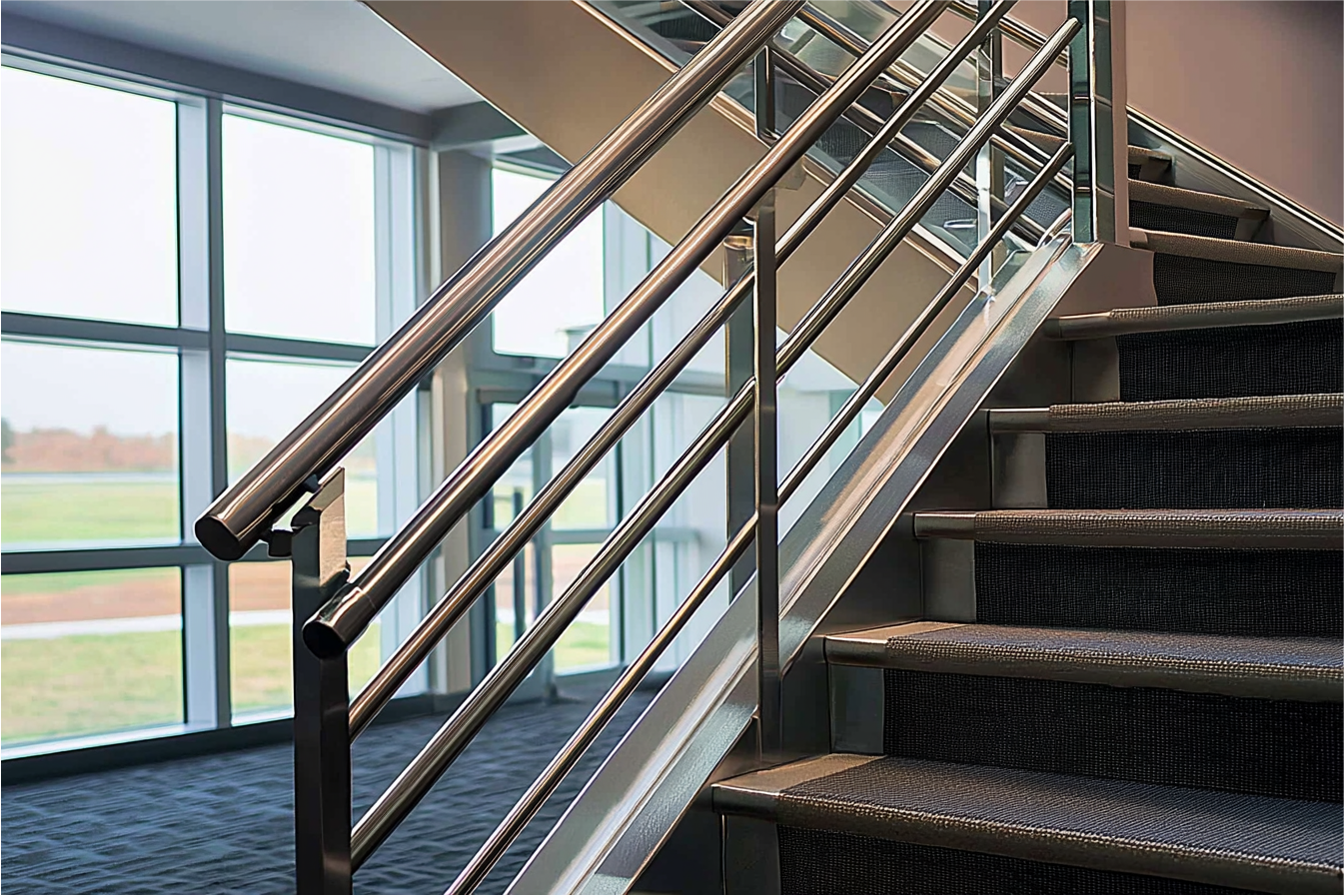
Будучи директором по глобальному бизнесу компании MFY, я постоянно замечаю, что наши надежные методы обеспечения соответствия стандартам - это не просто строчка в контрольном списке, а основополагающий фактор нашей глобальной конкурентоспособности. В отрасли, где точность, надежность и следование стандартам имеют первостепенное значение, наша приверженность всестороннему соблюдению требований отличает нас и обеспечивает ощутимые преимущества для наших клиентов по всему миру. Индия, Юго-Восточная Азия, Ближний Восток и Россия4. Это влияние многогранно, оно затрагивает доступ на рынок, доверие клиентов, снижение рисков и даже формирование культуры инноваций. Для наших целевых клиентов - производственных компаний, инженерных и строительных подрядчиков, дистрибьюторов и интеграторов оборудования - партнерство с поставщиком, который уделяет первостепенное внимание соблюдению требований, означает снижение неопределенности, повышение безопасности проекта и, в конечном счете, укрепление конкурентных позиций их собственного бизнеса. Интегрированная цепочка поставок и инновационное развитие MFY еще больше усиливают эту непоколебимую приверженность мировым стандартам.
Расширение доступа на рынок и снижение торговых барьеров
Одним из основных способов повышения конкурентоспособности компании MFY на мировом рынке является обеспечение и расширение доступа на международные рынки. Многие страны и регионы имеют строгие правила импорта и требуют специальные сертификаты5 (например, CE для Европы, ASTM для Северной Америки, специальные национальные стандарты для Индии или России) в качестве необходимого условия для выхода на рынок. Активно получая и поддерживая эти сертификаты для наших труб и трубок из нержавеющей стали, MFY эффективно преодолевает потенциальные торговые барьеры. Это означает, что наша продукция может быть легко принята в более широком круге стран, что обеспечивает нам более широкую клиентскую базу и снижает нашу зависимость от какого-либо одного рынка. Например, наличие сертификата PED позволяет нам беспрепятственно поставлять трубы из нержавеющей стали для оборудования, работающего под давлением, в страны Европейского союза - рынок, который в противном случае был бы недоступен или на который было бы гораздо сложнее выйти. Исследования Международной организации по стандартизации (ISO) показывают, что международные стандарты способствуют развитию торговли, создавая общий технический язык, что потенциально может увеличить объемы экспорта для компаний, соответствующих требованиям, на 15%.
Такой проактивный подход к сертификации значительно сокращает время выполнения заказа для наших клиентов. Когда производственной компании в Юго-Восточной Азии требуется определенный сорт нержавеющей стали, отвечающий требованиям ASTM, она может с уверенностью заключить контракт с MFY, зная, что наша продукция уже отвечает этим требованиям, что позволяет избежать длительных и дорогостоящих процессов повторного тестирования или сертификации на местах. Такая скорость и надежность являются важнейшими конкурентными преимуществами в условиях современной быстро меняющейся глобальной экономики. Я вспоминаю ситуацию, когда новый клиент, крупный строительный подрядчик на Ближнем Востоке, обратился к нам со срочным требованием по проекту с очень специфическими требованиями по соответствию стандарту EN. Поскольку у нас уже имелись необходимые сертификаты и протоколы испытаний конкретных партий, мы смогли уложиться в сжатые сроки, в то время как другие потенциальные поставщики все еще пытались понять требования или начать испытания.
Кроме того, наш опыт в работе со сложной таможенной документацией и экспортными процедурами, который является неотъемлемой частью нашей системы контроля, обеспечивает более плавное и быстрое оформление грузов. Это снижает риск дорогостоящих задержек в портах, платы за простой и срывов графиков проектов наших клиентов. Для дистрибьюторов и трейдеров такая надежность поставок имеет решающее значение для управления собственными запасами и удовлетворения потребностей конечных клиентов. Таким образом, наша практика соблюдения требований напрямую приводит к повышению эффективности и надежности цепочки поставок для наших глобальных партнеров.
Повышение доверия клиентов и укрепление репутации бренда
Последовательное соблюдение международных стандартов соответствия является основой для создания и поддержания доверия клиентов, которое является краеугольным камнем репутации бренда MFY и глобальной конкурентоспособности. Когда клиенты приобретают трубы и трубки из нержавеющей стали у MFY, они не просто покупают продукт; они инвестируют в гарантию качества, безопасности и надежности. Наши сертификаты -ISO 9001 для управления качеством6сертификаты на конкретные изделия, такие как ASTM или EN, а также соответствие региональным стандартам - все это служит весомым доказательством нашего стремления к совершенству. Такое документальное подтверждение соответствия обеспечивает спокойствие, особенно для клиентов в таких критически важных отраслях, как машиностроение, строительство и производство, где отказ материала может привести к серьезным последствиям. Глобальное исследование Nielsen, посвященное корпоративной социальной ответственности, показало, что 66% потребителей готовы платить больше за продукцию компаний, приверженных позитивному социальному и экологическому воздействию, и аналогичные настроения характерны для B2B в отношении гарантий качества и надежности.
Это доверие приводит к повышению лояльности клиентов и повторному бизнесу. Когда инженерный подрядчик успешно завершает проект с использованием нержавеющей стали MFY, отвечающей требованиям, он с большей вероятностью обратится к MFY для реализации будущих проектов. Такое долгосрочное сотрудничество гораздо ценнее, чем разовые продажи. Наша прозрачность в предоставлении сертификатов испытаний, аудиторских отчетов (при необходимости) и разрешении инспекций для клиентов еще больше укрепляет это доверие. Например, мы работали с интегратором оборудования, который изначально сомневался из-за предыдущего неудачного опыта работы с другим поставщиком. Предоставив им исчерпывающую документацию, ознакомив их с нашими процессами контроля качества и даже пригласив их на аудит предприятия, мы смогли заложить прочный фундамент доверия, который привел к многолетнему сотрудничеству.
Кроме того, репутация компании MFY как поставщика, соблюдающего требования законодательства, укрепляет ее репутацию на мировом рынке. Она позиционирует нас как надежного и этичного поставщика, что становится все более важным, поскольку компании сталкиваются с более пристальным вниманием к своим цепочкам поставок. Положительные отзывы из уст в уста от довольных клиентов, которые на собственном опыте убедились в нашей приверженности соблюдению нормативных требований, являются бесценным маркетинговым активом. В условиях конкурентной борьбы наши документально подтвержденные данные о соблюдении требований часто служат ключевым отличительным фактором, склоняя чашу весов в нашу пользу даже при столкновении с чувствительными к цене конкурентами. Такая репутация надежной компании напрямую способствует реализации нашего видения - стать ведущим международным торговым и сервисным брендом в китайской индустрии нержавеющей стали.
Снижение рисков и оптимизация операционной эффективности
Эффективная практика соблюдения требований законодательства имеет решающее значение для снижения широкого спектра рисков и оптимизации операционной эффективности MFY, повышая тем самым нашу конкурентоспособность. Несоблюдение требований может привести к целому каскаду негативных последствий, включая отзыв продукции, задержки в реализации проектов, юридические обязательства, финансовые штрафы, ущерб репутации бренда и потерю доступа на рынок. Инвестируя в надежную СМК, тщательные испытания и постоянное обучение сотрудников, MFY значительно снижает вероятность таких событий. Например, наша система тщательной прослеживаемости материалов позволяет быстро выявить и изолировать любой потенциально несоответствующий продукт, сводя к минимуму масштабы любой проблемы. Отраслевые исследования показали, что стоимость низкого качества (COPQ), которая включает в себя переделки, брак, гарантийные претензии и упущенные продажи из-за несоответствия требованиям, может составлять 15-20% от выручки некоторых производственных компаний. Проактивное соблюдение требований MFY помогает минимизировать эти затраты на COPQ.
Наша приверженность соблюдению требований также способствует повышению эффективности производства. Стандартизированные процессы, предусмотренные такими системами, как ISO 9001, приводят к большей согласованности, снижению вариативности и уменьшению количества ошибок в производстве. Это приводит к уменьшению количества переделок, снижению количества брака и оптимизации использования ресурсов, что способствует экономии средств, которые могут быть переданы клиентам или реинвестированы в бизнес. Например, соблюдая строгие графики калибровки нашего производственного и испытательного оборудования, мы обеспечиваем точность и согласованность, снижая вероятность производства материалов, не соответствующих спецификации. Такая внутренняя эффективность позволяет MFY предлагать конкурентоспособные цены без ущерба для качества и соответствия требованиям.
Кроме того, четкое понимание правил международной торговли и таможенных процедур, являющееся частью нашего опыта в области соблюдения экспортных требований, помогает нам избежать дорогостоящих ошибок при доставке и оформлении документации. Это снижает риск таможенных штрафов, платы за хранение задержанных грузов или даже конфискации товаров. Для наших клиентов, особенно производственных компаний, работающих по принципу "точно в срок", или подрядчиков с жесткими сроками реализации проектов, такая надежность работы является значительным конкурентным преимуществом, которое обеспечивает MFY. Способность постоянно поставлять продукцию, соответствующую требованиям, вовремя, каждый раз, является мощным отличительным фактором на мировом рынке нержавеющей стали.
Соответствие требованиям расширяет доступ на рынокПравда
Такие сертификаты MFY, как CE и ASTM, устраняют торговые барьеры, позволяя выйти на 15% большее количество рынков, согласно исследованиям ISO.
Соблюдение требований увеличивает производственные затратыЛожь
Хотя соблюдение требований требует инвестиций, стандартизированные процессы MFY фактически снижают операционные расходы на 15-20% за счет повышения эффективности.
Заключение
Неизменная приверженность MFY глобальной сертификации и соблюдению экспортных требований является основополагающей. Это обеспечивает доступ на рынок, укрепляет доверие клиентов благодаря гарантии качества, снижает риски и повышает нашу конкурентоспособность, укрепляя нашу роль в качестве ведущего международного бренда по торговле и обслуживанию нержавеющей стали.
-
Узнайте о важных стандартах соответствия для производства труб из нержавеющей стали. ↩
-
Понять значение стандартов ASTM в производстве нержавеющей стали. ↩
-
Изучите особенности сертификации продукции из нержавеющей стали по стандарту API. ↩
-
Узнайте о стратегическом охвате глобального рынка компанией MFY и значении экспорта для конкурентного позиционирования. ↩
-
Узнайте о важнейших сертификатах, обеспечивающих доступ на рынок и упрощающих экспорт продукции из нержавеющей стали. ↩
-
Поймите, как ISO 9001 улучшает управление качеством в глобальных операциях, повышая доверие и удовлетворенность клиентов. ↩
У вас есть вопросы или нужна дополнительная информация?
Свяжитесь с нами, чтобы получить индивидуальную помощь и квалифицированный совет.
